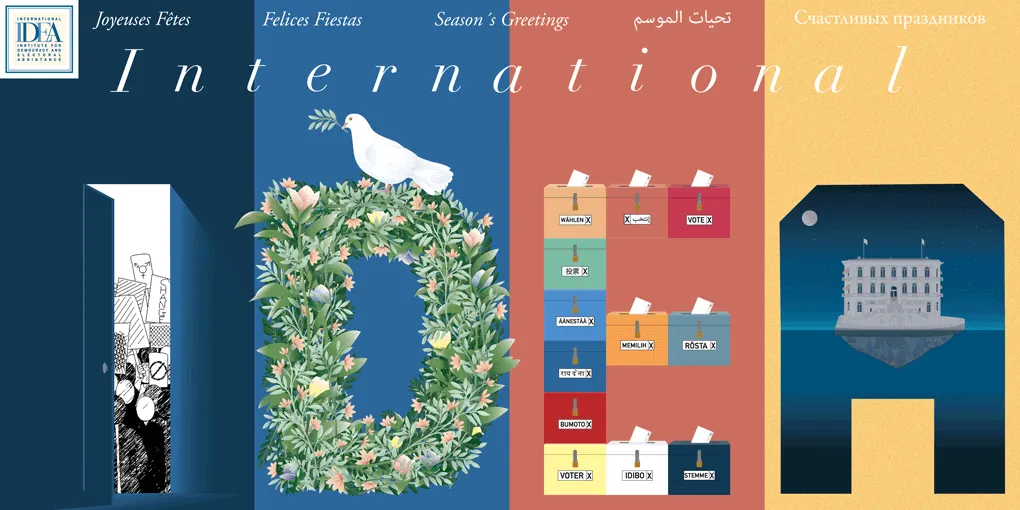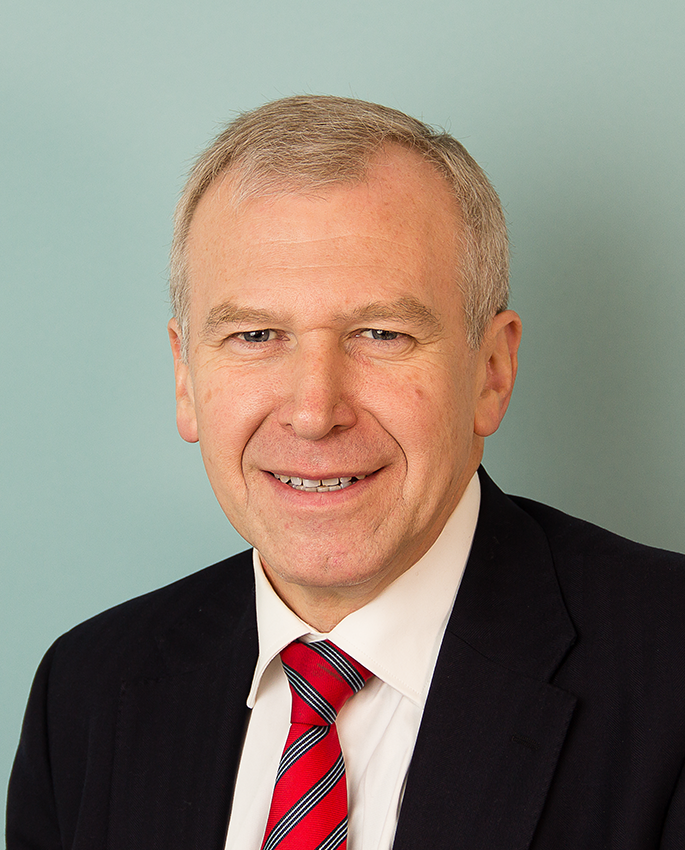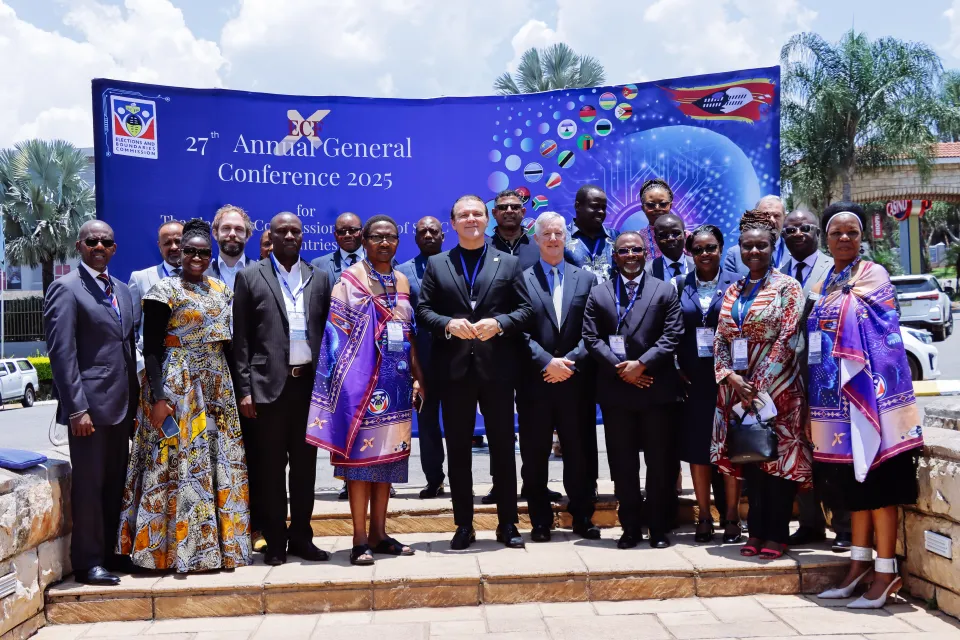
As we are nearing the end of 2017, it is an opportune time to look back and reflect on the year that has just gone by.
2017 marked the end of International IDEA’s 2012–2017 Strategy. This has therefore been a year of stocktaking for the institution, dedicated to collective reflection on key achievements and lessons learned from the six-year strategy period that is coming to an end. This comes at an opportune time, as the democracy landscape is undergoing important changes, with increasing pressure on democracy to deliver sustainable development for all and threats in both emerging and established democracies.
Important inputs to this reflection process were the 2014 mid-term evaluation and the external institutional evaluation that IDEA commissioned in 2016–2017. The evaluation assessed the effectiveness and relevance of the implementation of our 2012–2017 Strategy, to identify strengths as well as areas in need of change and reform to continue enhancing the effectiveness of International IDEA’s operations and programmes.
These reviews have formed an important basis for defining the strategic directions for International IDEA for the five coming years, with the Council of Member States approving the new 2018–2022 Strategy on 6 December 2017. This Strategy is broadly owned, emerging out of a highly consultative process with staff, Member States representatives, IDEA’s Board of Adviser members and other key partners and stakeholders.
The 2018–2022 Strategy responds to evolving opportunities and threats in the democracy landscape, in both new and established democracies, and builds on International IDEA’s comparative advantage as a 'think and do tank' to advance democracy-building worldwide. The Strategy scales up work on emerging themes, such as the role of technology for democracy, sub-national democracy, parliamentary strengthening and new forms of citizen engagement in the political process. International IDEA will continue to produce global comparative knowledge across three main impact areas where it has a proven track record: electoral processes, constitution-building and political participation; with the cross-cutting themes of gender and inclusion, conflict sensitivity and sustainable development mainstreamed across the impact areas. International IDEA will continue to operate across its consolidated four regional programmes: Africa and West Asia; Asia and the Pacific; Latin America and the Caribbean; and Wider Europe.
Let me highlight and reflect on some key institutional achievements during 2017 and the current strategy period at global, regional and country levels.
At the global level, an important achievement was the launch of International IDEA’s first Global State of Democracy Report: Exploring Democracy’s Resilience, in November 2017. This new flagship report, based on IDEA’s newly developed democracy indices, assesses the health of global democracy since 1975 and explores key current challenges to democracy as well as the enabling conditions for its resilience. It also analyses the impact of the process of democratic backsliding on the quality of democracy as well as key challenges such as the changing nature of political parties and representation; money, influence, corruption and state capture; inequality and social exclusion; migration, social polarization, citizenship and multiculturalism; and democracy and peacebuilding in post-conflict transitions. The report will be published on a biennial basis and will be a key instrument for International IDEA to stimulate the public debate on democracy and advocate for policy solutions to advance democracy.
International IDEA has continued to produce policy-relevant knowledge and analysis across all its impact areas (electoral processes, constitution-building, democracy and development and political parties and representation), with a total of 410 knowledge products produced from 2012 to 2017. International IDEA also boasts increasing visits to its nine online databases, which receive more than 600,000 visitors per year. An important shift in International IDEA’s knowledge production during this strategy period has been the diversification into more policy-relevant formats, and adaptation to the needs of more digitally-savvy audience. During this period, we have also made important strides in media outreach, with an increasing number of op-eds published in key influential news outlets, an increase in the number of news mentions worldwide and a significant increase in social media followers and coverage.
In the field of electoral processes, International IDEA has continued to maintain its position as a reference institution in the field. International IDEA has continued to strengthen the capacities of electoral management bodies, for example in assessing and mitigating electoral risks. The Electoral Risk Management Tool, produced by International IDEA, is now used by 200 organisations from 80 countries worldwide. International IDEA’s BRIDGE training modules have been provided to electoral stakeholders in more than 100 countries. Moreover, International IDEA’s technical assistance is increasingly being sought in the area of ICT and elections, where advice has been provided to governments e.g. Afghanistan, Bosnia-Herzegovina, Albania, Ukraine and Myanmar.
In the field of constitution-building, International IDEA has built a name as a globally recognized thought-leader in the field, with an unparalleled array of high-quality knowledge resources (95 in the 2012–2017 period) and technical assistance. Its key reference is ConstitutionNet, an online source of news, analysis and resources on constitution building, which reached as many as 400,000 views in 2017. In-country technical assistance to constitution-building processes has been provided to countries like Chile, Tunisia, Libya, Yemen, Myanmar, Nepal, Ukraine, Afghanistan, the Philippines, Tuvalu, Sri Lanka and Benin during the 2012-2017 period.
In the area of political party strengthening and political finance, International IDEA has continued to advance the global agenda on the relation between money in politics through International IDEA’s knowledge resources, analysis and debate. International IDEA produced the most comprehensive database of political finance laws and regulations, covering 180 countries. International IDEA has also produced a number of knowledge products on the topic, including on the links between organized crime and democratic processes, and organized a number of agenda-setting conferences on the topic in all regions where we operate, in addition to providing continuous advice on political finance legislation and regulations to an increasing number of countries.
I am also very proud of our regional achievements. International IDEA now has four robust regional programmes, and ten country programmes operating through different modalities (in Haiti, Peru, Bolivia, Paraguay, Nepal, Myanmar, Bhutan, Kenya, Tunisia and Ukraine) with three more confirmed to be opened in 2018 (in Mexico and Central America, Fiji and Ethiopia).
International IDEA’s country programmes have raised over 51 million euros in project funding over the past six years and contribute to local knowledge adaptation and generation on democracy-building with International IDEA as a key strategic partner in democratic reform to governments, and non-governmental institutions.
I can say with pride that International IDEA is ending this strategy period as a stronger institution, both programmatically and institutionally. A number of reforms have been implemented to ensure that more resources are allocated to strategic programmes, and less to administrative costs, our overhead costs have been reduced and our financial controls and reporting have been strengthened. While additional efforts are needed to strengthen our results reporting, learning, monitoring and evaluation and knowledge management in the new strategy period, the arduous and committed efforts made by all staff during the past six years, will ensure that coming reforms rest on a robust basis.
And finally, one of the main lessons from this strategy period, echoed also in our recent Global State of Democracy publication, is that democracy cannot be taken for granted. It needs to be built, nurtured, sustained and safeguarded. And International IDEA will continue to be a key player and partner to this process in the five years to come.
Before I end, I would like to also say some words in memory of Dr Surin Pitsuwan, the Chair of International IDEA’s Board of Advisers since 2014, who sadly passed away last month. Surin played in the political history of his country and his region. He served as Thailand's minister of Foreign Affairs from 1997–2001, and as Secretary-General of the Association of South East Asian Nations (ASEAN), from 2008–2012. Above all, however, Surin was also a great and very valued contributor to the work of International IDEA. His enthusiasm and passion for democracy will be remembered by all those that crossed his path during these years, and so will his consistent, and deeply-held, respect for everyone’s opinions, that he so skilfully displayed in the many Board meetings he moderated with such elegance and kindness. May he rest in peace.
I take this opportunity to thank the staff of International IDEA for all their efforts in contributing to make International IDEA an institution of excellence; International IDEA member states for their valuable guidance and support; the Board of Adviser members; and our partners, for their valued encouragement and support.
I wish all a restful holiday season and the best for 2018!




